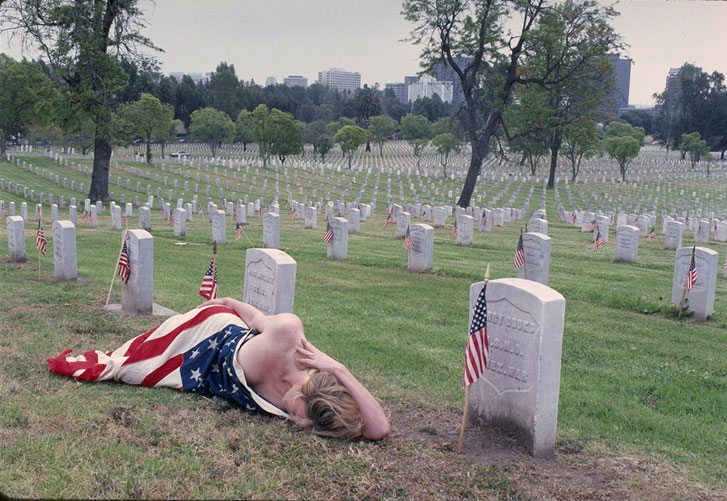Prof. Sam Lehman-Wilzig – Memorial Daze
I happened to be in the U.S. on Memorial Day weekend this year. On the radio the DJ was chatting along, and before signing off had this to offer his listeners: “Enjoy the Day!”
Nothing unexceptional to American ears, what with Memorial Day sales, barbecues, outdoor fairs – and from a distance a flag at half-mast here and there, with an accompanying, standard news report from Arlington cemetery in Washington, DC about honoring those who gave their lives for democracy etc.
But to my (by now, after 40 years) Israeli ears, “enjoy the day” was most jarring. How can anyone “enjoy” a day commemorating hundreds of thousands of dead soldiers? In Israel, even Independence Day can only be half-enjoyed, coming a day after its own Memorial Day (Yom ha’Zikaron) where solemnity rules: seemingly half the country visiting military cemeteries – and the other half brought to a screeching halt when the sirens go off in the morning to remind one and all of previous sirens of war and their human casualties.
In a nutshell, these two Memorial Day narratives goes some way in highlighting some fundamental differences between the two allies. For Israel, the existential threat continues apace so that those who fell in the past remain “relevant” in the present. The U.S., on the other hand, no longer feels such an existential threat and probably hasn’t since the Cuban missile crisis over 50 years ago. Yes, Americans appreciate the sacrifice of its soldiers, but for most people that’s an exercise in historical memory, not contemporary angst. For Israelis, the day remains truly sacred precisely because it is as relevant today as it was in the past.
This “divide”, though, can also be felt between Israeli Jews and their American brethren. If you are an American reading this, ask yourself the following question: when was the last time (if ever) that you commemorated Israel’s Memorial Day? In almost all cases, only if you happened to have been in Israel for Independence Day and by-the-by got caught up a day earlier in its Memorial Day. In Jewish America, it doesn’t exist – even though these are the first Jewish soldiers in 2000 years to die fighting for the continued existence of the Jewish State! Tisha b’Av yes (when Jewish soldiers died in a lost war to retain political independence) – but Israel’s Memorial Day no, when Jewish soldiers died in successive successful wars to protect the Jewish people’s state? Isn’t that perverse from a Jewish standpoint, wherever Jews might be?
This is but another example of the growing divide between the world’s two largest Jewish population centers. To be sure, Israelis appreciate American Jewry’s Israel Independence Day parades and celebrations (although as a rough estimate, close to half the participants are former Israelis – “yordim” we used to call them). But Israelis would be far more appreciative if their Jewish counterparts in the U.S. would also devote some ceremonial attention to those who through their supreme sacrifice helped ensure the continuation of the State of Israel.









